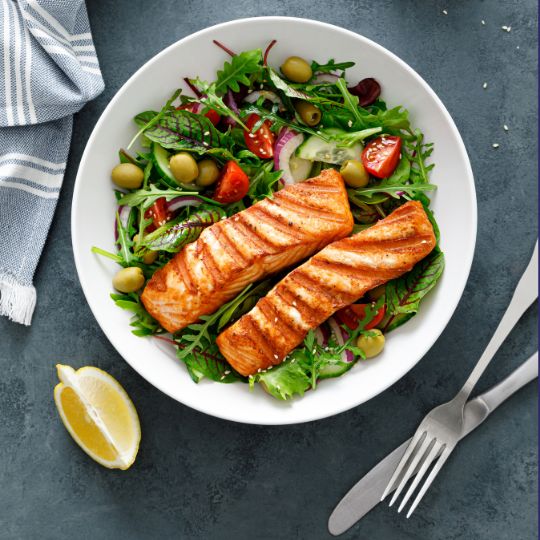In times of stress, supporting our bodies with whole foods does not always seem to be our first thought. Stress has become almost inevitable in this fast-paced world; from work deadlines to personal responsibilities, the constant demands on our time and energy can lead to a state of chronic stress. This stress can trigger the release of cortisol, a hormone designed to help us deal with short-term stressors. However, when stress becomes chronic, cortisol can wreak havoc on our health, leading to various nutrient deficiencies. Fortunately, whole foods can offer a natural solution to combat these deficiencies. Let’s explore the nutrients affected & how to support stress with whole foods.
Vitamin C
Stress can deplete the body’s stores of vitamin C, which is essential for a healthy immune system and the production of collagen. Whole food sources of vitamin C include citrus fruits like oranges and grapefruits, as well as vegetables like bell peppers, strawberries, and broccoli. Incorporating these into your daily diet can help boost your vitamin C intake.
Magnesium
Chronic stress can lead to magnesium deficiency, as the body uses this essential mineral to regulate stress hormones. Whole food options rich in magnesium include leafy greens like spinach and kale, nuts and seeds, whole grains like quinoa, and avocados. These foods can help replenish magnesium levels and promote relaxation.
B Vitamins
B vitamins, particularly B5 and B6, play a crucial role in regulating stress hormones and supporting the nervous system. Whole food sources of B vitamins include lean meats, poultry, fish, eggs, whole grains, and legumes. Incorporate these foods into your diet to ensure you’re getting an adequate supply of B vitamins.
Omega-3 Fatty Acids
Stress can lead to inflammation in the body, which omega-3 fatty acids can help counteract. Fatty fish such as salmon, mackerel, and sardines are excellent sources of these healthy fats. Vegetarians and vegans can turn to flaxseeds, chia seeds, and walnuts for their omega-3 intake.
Zinc
Chronic stress can deplete zinc levels, which are important for immune function and wound healing. Whole food sources of zinc include lean meats, poultry, nuts, seeds, and dairy products. For vegetarians and vegans, legumes and whole grains can provide zinc.
An important note – Chronic stress can also impact the body’s ability to digest and break down these helpful nutrients, so make sure to read my past blog post called “How Stress Affects Your Digestive System” and how to support that.
The impact of chronic stress on our bodies extends beyond mental health. It can deplete vital nutrients, leaving us susceptible to a range of health issues. Incorporating whole foods rich in these essential nutrients can help counteract these deficiencies and support our overall well- being. By supporting our stress with whole foods, we can embrace a healthier, more balanced life.
If you’re feeling overwhelmed by this topic, or have more questions, I am always happy to talk further about it. You can click here to book a free nutrition consultation to go over what I may be able to help you with through nutrition counseling.





